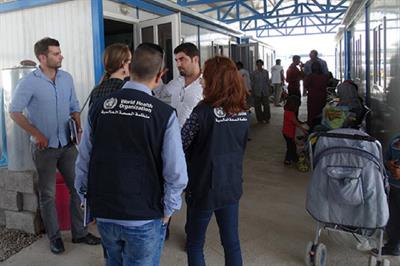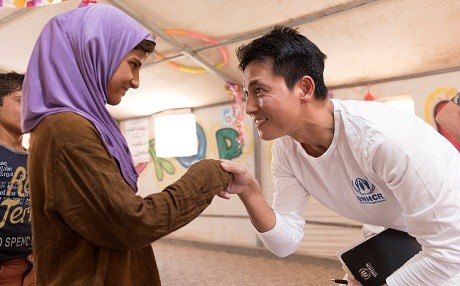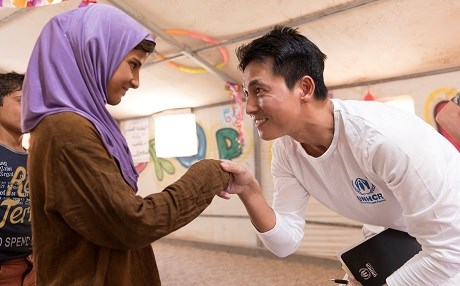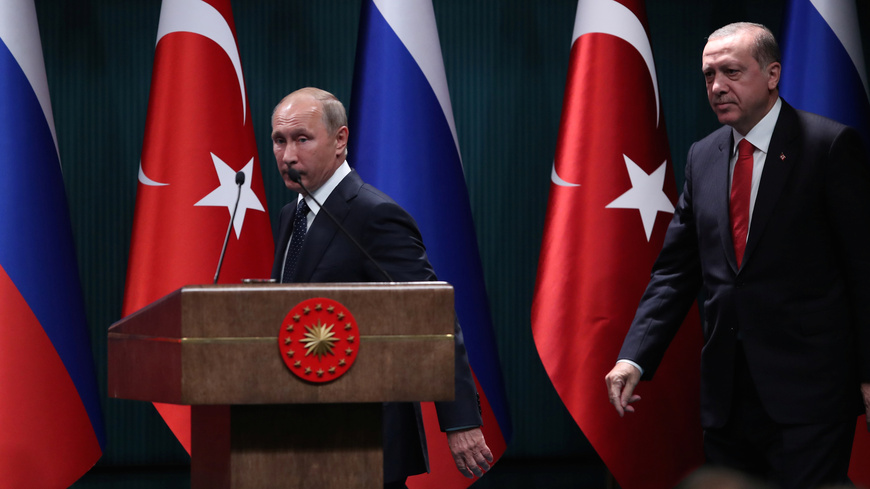The World Health Organization (WHO) extends its gratitude to the U.S. Department of State Bureau of Population, Refugees, and Migration (BPRM) for the generous contribution of US$ 2.5 million to increase the health security and resilience of Syrian refugees living in Iraq.
In 2018, Iraq continued to host Syrian refugees. It is estimated that about 250,000 Syrian refugees are currently residing in the three governorates of the Kurdistan Region of Iraq (KRI) namely Erbil, Dahuk, and Sulaymaniyah, the majority of which (64%) lives with the hosting communities.
“There is an urgent need to support the local health authorities in KRI to ensure that Syrian refugees here have access to proper health services,” said Dr. Adham R. Ismail, Acting WHO Representative in Iraq. “Providing comprehensive primary, secondary, referral, and outbreak prevention and response services in the three refugee governorates is a WHO priority for the coming phase; it will indirectly improve the resilience of the refugees and host communities against potential public health emergencies,” he added.
Syrian refugees in Iraq have been given free access to primary health care services whether through camp-based primary health care centers ((PHCC) for refugees living in camps or public health facilities specified for those living with the host communities.
These services have been provided by the directorates of health of Erbil, Dohuk, and Suleimaniya in collaboration with WHO and health partners. However, the mass internal displacement of over 3.3 million Iraqis in 2014 had stretched the capacity of the national health authorities and humanitarian partners to continue meeting the needs of refugees and respond to the inflated demand for health care intervention.
As of 2018, WHO has been active in filling the gaps in essential medicines and medical supplies and equipment, improving referral services, and supporting surveillance and water quality monitoring activities in the refugee camp and non-camp settings. According to the 2017 national health reports, the said DOHs have provided a total of 264,611 consultations to Syrian refugees residing in KRG of Iraq.
The contribution of US$ 2.5 million from the U.S. BPRM will support the provision of comprehensive primary health care and referral services for around 300,000 Syrian refugees and host communities in KRI. It will also support the healthcare services for the disabled and mentally ill patients in the three mentioned governorates through a comprehensive training program for the national professionals working in the mental health area.
The contribution will also cover the procurement and distribution of essential medicines, and medical supplies and equipment to selected health facilities serving the refugees in target governorates.
(Source: UN)




